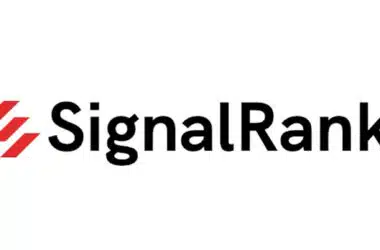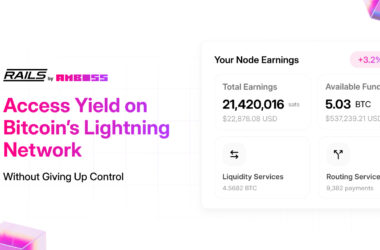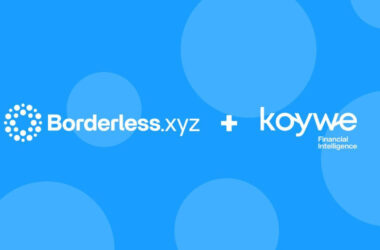Table of Contents
The Future Outlook for the Accountancy Profession
In the last couple of articles, we have discussed how the fintech revolution has disrupted the global economy and finance. The revolution has just begun and as blockchain, automation, artificial intelligence and machine learning develop, better fintech products and services are going to be rolled out. The disruption however is not only limited to the economy. It goes without saying that the job roles have also been significantly disrupted and the future is going to see more disruption.
Effect of technology on job roles
In order to understand how technology will affect job roles in the future, we must look for precedents in the past. If we simply cast a glance at the last ten years, we can see that before smartphones became mainstream, the app development market was non-existent.
The launch of the iPod touch and then the iPhone revolutionized the market and created the app development industry which then created new job roles for app developers. So ten years ago there was no market for app developers whereas today app developers are not only in high demand but almost every tech-based startup aims to start out with an app.
Let us look further into the past. The eighties were also a very transformative period for global banking and finance. Computers were becoming mainstream and many businesses were adopting these new machines to improve their efficiency. Basic spreadsheet software was also introduced around the same time. The introduction of computers created disruption for accountants in particular because bookkeeping was changing. Manual books were being replaced by computers and spreadsheet software, so accountants had to upgrade their skills so that they could remain relevant in the job market.
We can see a pattern that whenever a new technology emerges, it creates disruption for the relevant job roles. Responding to these job roles is a task that has to be carried out at multiple levels by all of the concerned stakeholders.
For instance, now that we can see that fintech is clearly changing the job roles. The response has to come from:
- Employers
- Professional education providers or universities
- Accounting professionals
Employers are at the forefront of this transformation; they are the ones who are directly affected. Companies today are adopting new technology because they can clearly see that five or ten years down the line these innovative new technologies will become mainstream.
The Future Outlook for the Accountancy Profession
Now when employers adopt new technologies and solutions, they need to make sure that they have got qualified individuals who can work with the new technology. For instance, in the last ten years, data analysis has become a major part of every company.
Finance managers and accountants are now required to have knowledge of data analysis techniques, to remain relevant and competitive in the market because companies prefer to hire accounting professionals with upgraded skill sets instead of hiring an accountant for bookkeeping and accounting tasks and a separate data analyst to analyse the data being processed by the accountant.
But the problem is that universities and professional skill providers only provide necessary training once it becomes apparent that the skills will be required by the market in sufficient numbers. Once again if we look at the past, blockchain was introduced around 2008. How many universities or skill providers were conducting courses on blockchain back then? None.
Why? Simply because universities and skill providers get their info for the future market from companies and employers. This is why it is vital for companies to work together with universities to create courses that can result in timely skill up-gradation for future professionals.
PWC for instance is partnering with leading universities to design courses for blockchain, data analytics and machine learning. These courses are being designed in line with the changes that PWC can foresee for the next ten to twenty years.
Similarly, it is very important for professional skill providers and universities to make their courses and examination processes more flexible. ACCA for instance changed their professional level examinations, in line with the feedback that they got from employers in the market.
The Future Outlook for the Accountancy Profession
Their previous examination structure was focused on testing the knowledge learned from books whereas the new examination structure is based on a practical understanding of the knowledge learned by the students. The new structure tests how well the students can perform in practical situations.
This is just one example, employers and universities or skill providers need to work together because they form a value chain. The universities and skill providers give the students the relevant skills, which are then utilized by the employers. This is almost a symbiotic relationship that can benefit both stakeholders.
Employers, therefore, need to share their job market insights, the future changes with skill providers and universities need to be flexible to make sure that the skills they are teaching will be relevant for the future.
If we look at accountants for instance then we can see that basic bookkeeping skills are no longer required by the industry. This does not mean that accountants no longer need to understand basic skills. Yes, they need to understand the basic skills but they are no longer required to pass entries because this role is being taken over by modern accounting programs like Sage, Xero, Crunch and Quickbooks etc. Fintech has automated the basic book-entry tasks, thereby allowing the accountants to focus on tasks that can create more value.
It would serve universities and skill providers better to reduce the time allotted for basic skills and focus more on higher-end skills that can allow accountants to create more value. It is also up to the students to seek out skills that are in demand because as we stated above, the universities and skill providers respond late.
The earlier you can upgrade your skills the better your employability will be and thus your earning potential and career prospects will be better too. The later you upgrade your skills, the lower your career prospects will become because the market will already have a supply of the skills that are in demand.
The way ahead… | The Future Outlook for the Accountancy Profession
Fintech has already disrupted the market so if you are a professional accountant or studying to become one then you have to plan out your career carefully at this point. Apart from your core competencies, upgrade your skills in
- Data analytics
- ERP
- Blockchain
- Automation
As an accountant, you won’t be required to know programming or coding but you will be required to create value from the output of data coming from these technologies. So make sure that you keep your skills relevant.
What do you think? Are you an accountant? Are you prepared for the future?
















Recent Comments